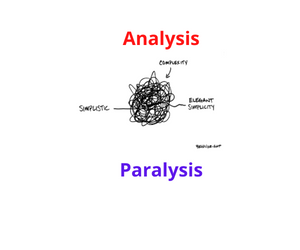Inspiration for this week’s post comes from a recent presentation for the Swiss Finance Institute. I have always maintained that there is nothing special about banking, so included in that presentation were thoughts on what might be learned from the great watch company.
Success with production in one of the world’s most expensive locations
In 1983, Nicolas Hayek, rescued the Swiss watch industry. Starting by merging the two largest manufacturers and then buying out the banks. In the intervening 30 years, Hayek and then his son, built a global business that has its production base in Switzerland. When he took over, the whole watch industry was losing CHF 200 million on sales of some 1.5 billion. Today, Swatch on its own turns over some 9 billion with profits of CHF 2.3 billion. That is a huge profit and one built on producing the watches in Switzerland. Yes, Switzerland, one of the world’s highest cost countries. This confounds all conventional wisdom. There are three essential lessons to be learned from Hayek’s approach:
- He insisted on building “at home”; firmly of the opinion that a country must build things at home in order to maintain know-how and build wealth
- He was adamant that this would work if direct labour costs were below 10% of total costs
- He built a common manufacturer for all the brands. Only marketing and sales were independent
The first point, know-how, is an interesting one. Banks are desperately offshoring and near-shoring. There are a lot war stories in this area, or more aptly horror stories, with processes moved offshore and then moved back. My own experience is that there are two potential pitfalls with this: offshoring exacerbates the degree of specialisation, with even fewer people having a full end-to-end view of a process and more often than not the outsourced team, whether a captive or not, has only the slightest idea of where their process fits into the whole. Both of these undermine the ability to create great processes.
Keeping direct labour costs in banks as low as in the Swatch case is probably not realistic, however behind that goal was a constant striving to simplify processes and make that possible.
The banks’ equivalent of point 3, “common manufacturer”, is what is most often referred to as “shared services”. This covers all the non-product specific support in Operations, such as settlements, payments, cash management and asset servicing. This practice is pretty common in banks, both in Operations and IT. It is a very difficult balance to strike; years back, when Goldman Sachs was still a private partnership, the en vogue idea was a “factory” so that a product owner could look all the way from front-to-back and say “these people support my product”. At the other extreme, when everything is shared, the flexibility for a single product is extremely limited. This will be the subject of next week’s Blog.
Lessons to be Learned: Other industries offer lessons for us banks.
And, just maybe, Switzerland’s high local costs are not as prohibitive as one might think. A client has been looking at new core banking platforms. With a desire to increase the focus on private banking and high net worth individuals, I suggested to the client that looking at what Swiss banks use would be a good place to start. One of those platforms also has an outsourcing offering, which is operated out of Switzerland. No deal has been done yet, but interestingly the all in cost of the outsourced service is at a level that is attractive for the client and in the realms of the possible.
Previous Posts: Are available on the 3C Advisory website, click here.
Publications:
The Bankers’ Plumber’s Handbook
How to do Operations in an Investment Bank, or Not! Includes all the Blog Posts, with the benefit of context and detailed explanations of the issues. True stories about where things go wrong in the world of banking. Available in hard copy only.
Cash & Liquidity Management
An up to date view of the latest issues and how BCBS guidance that comes into force from Jan 1 2015 will affect this area of banking. Kindle and hard copy.
Hard Copy via Create Space: Click here
Amazon UK: Click here
Amazon US: Click Here
Thanks for your support and thanks to the numerous contributors.
Share on:



